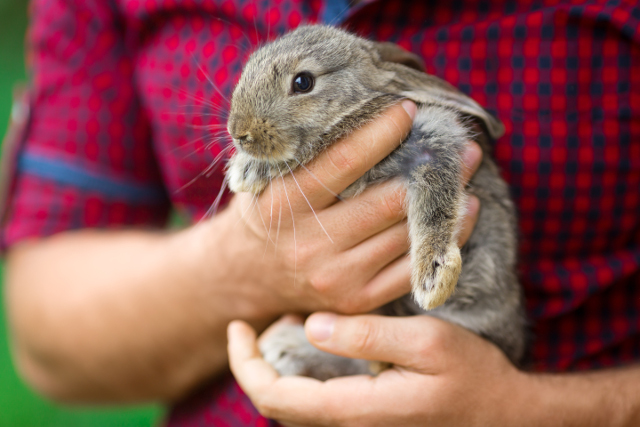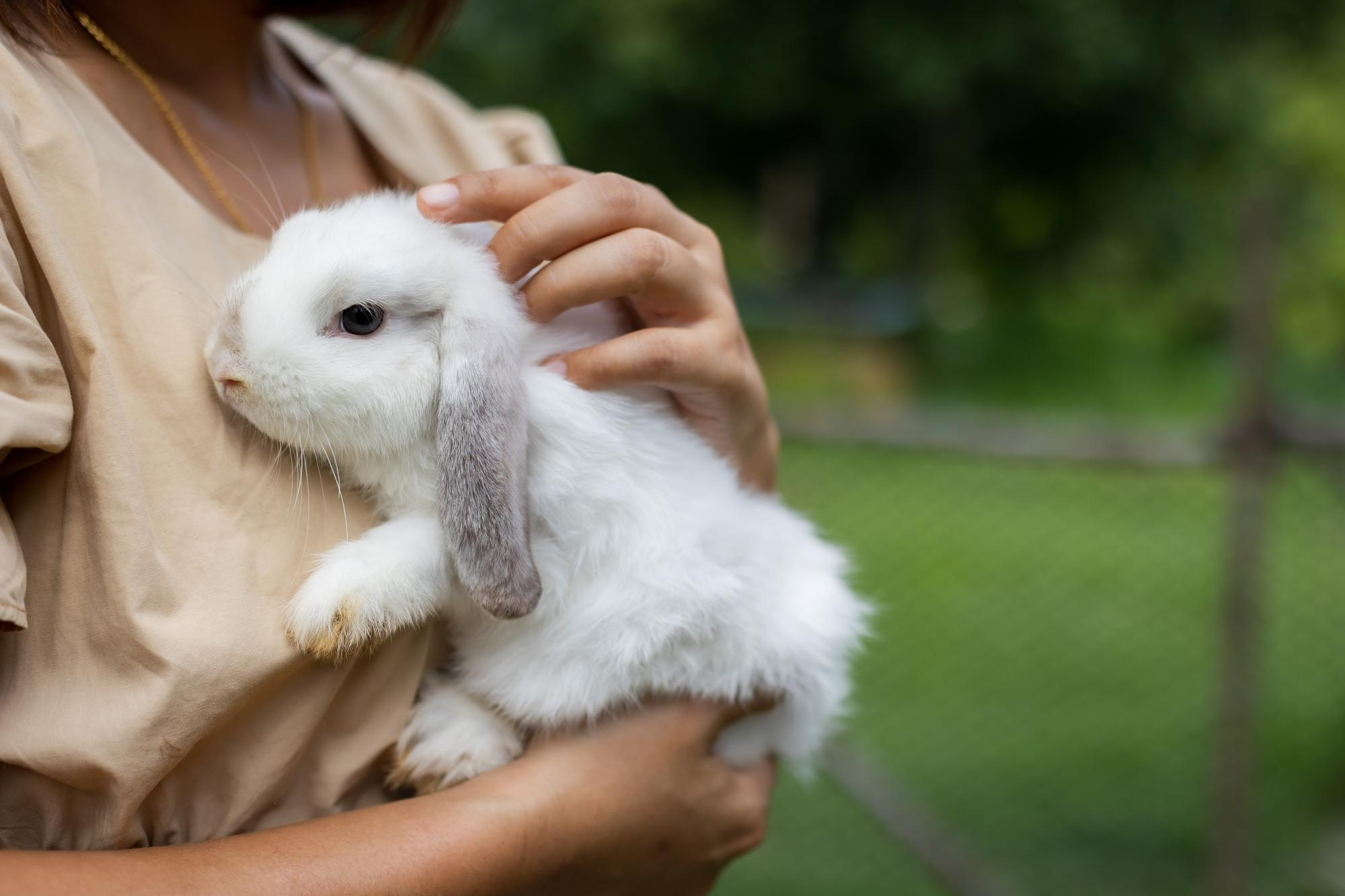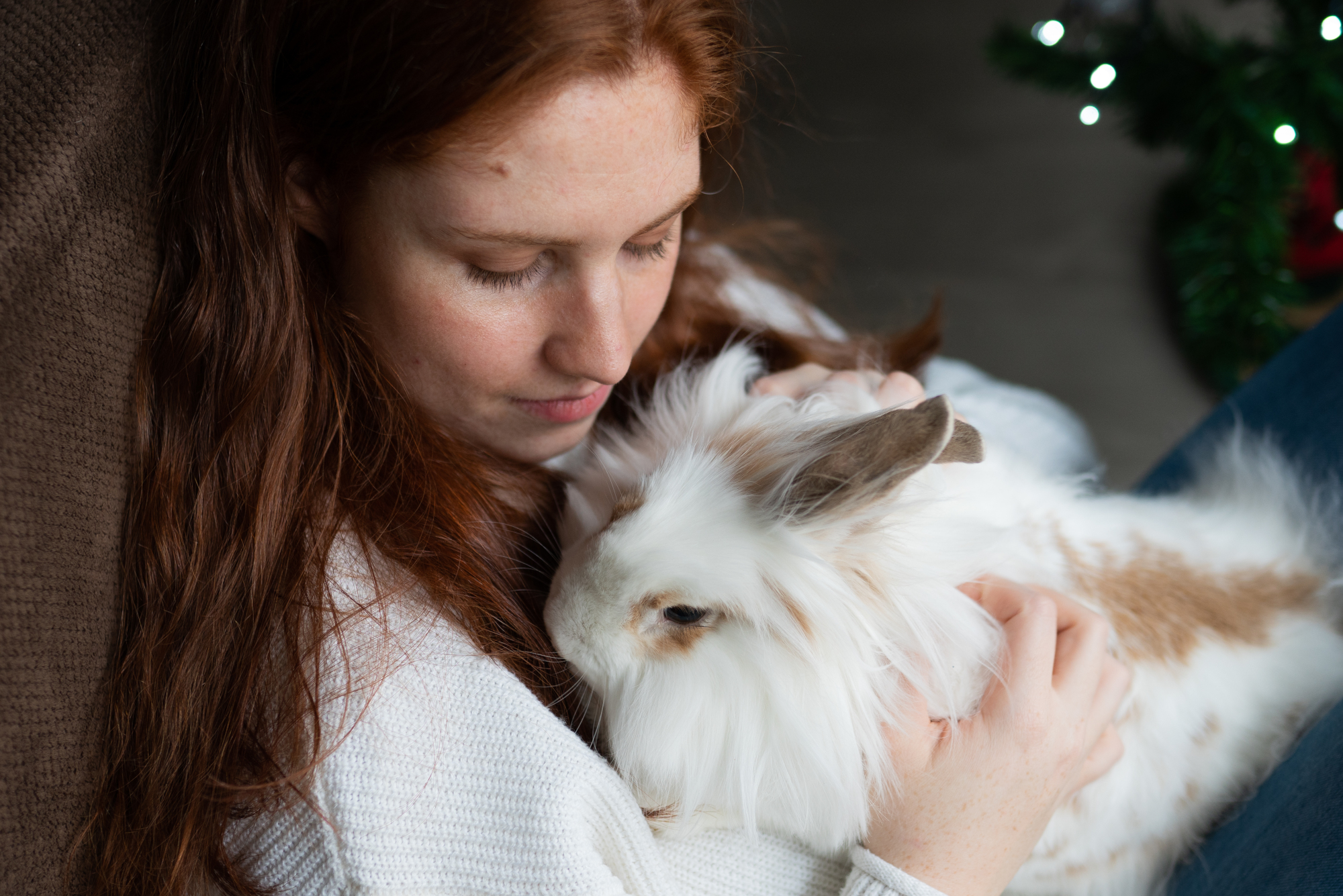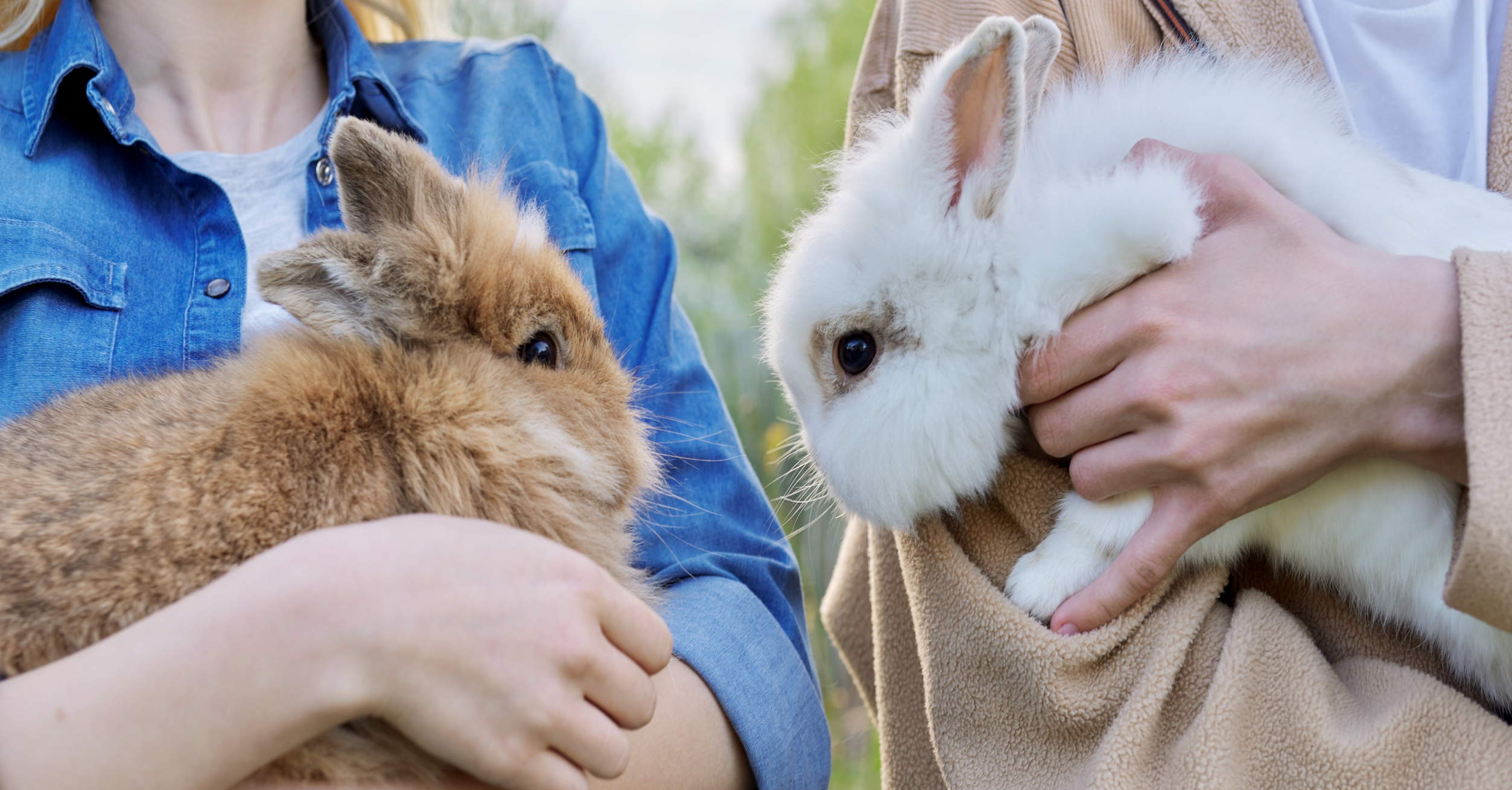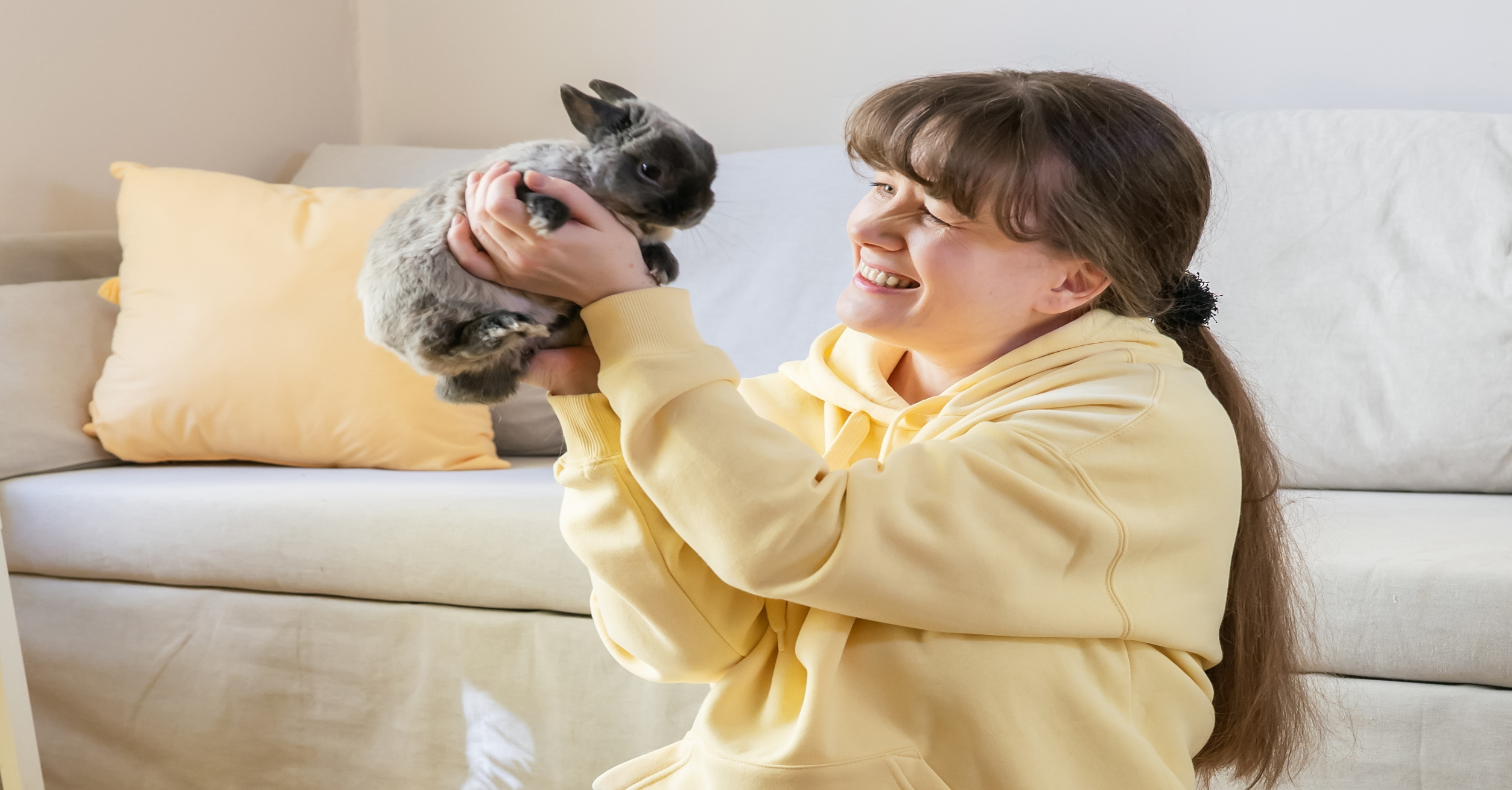Rabbits have a tendency to become stressed out easily. Whether it’s new people in the house, a trip to the vet, or another unfamiliar environment, rabbits can very easily become unhappy. Not only is this bad for your rabbit’s disposition, but also it can lead to health conditions in your rabbit, including depression, gastrointestinal stasis, as well as a higher likelihood of catching other illnesses.
Learning the emotional language of your rabbit can be hard, and it’s not always clear how you can help them be less stressed out. However, there are a few surefire ways to help any rabbit feel relaxed, comfortable, and happy. Here are some tips on how to make your rabbit’s life less stressful.
Keep loud noises to a minimum
Nothing scares a rabbit quite like loud, unfamiliar noises. Different sounds may affect your rabbit in different ways, but it’s generally a good idea to limit the loud noises in your rabbit’s space to a minimum. Some of the noises most likely to make them feel uncomfortable are kids yelling, dogs barking, and even loud noises on TV.
Since rabbits usually only live in one part of the home, you can focus on keeping just that area quiet. Pay attention to how your rabbit is reacting to certain noises, and do what you can to stop them, whether it’s turning down your music or shutting a window to outside.
Make sure they have a good environment
Rabbits are unique from other house pets like cats and dogs in that they can’t simply share a normal space with humans. Instead, rabbits need an enclosure with everything they need inside. This gives your rabbit all the necessities without them being at risk of running amok in your house.
When putting your rabbit’s enclosure together, you should keep their mood and stress levels in mind. Rabbits need space to exercise and roam, so make the enclosure as large as you possibly can. Also make sure to give your rabbit a couple good places to hide, such as a cardboard box or a covered portion of the enclosure. This allows them to hide when they want to, and gives them the option to emerge when they’re feeling up to it, improving confidence and lowering stress.
Get into a good routine
Rabbits are prey animals, and have been hunted by countless predators for thousands of years. Because of this, they’re hard-wired to be extremely distrustful of anything unexpected.
Domesticated rabbits tend to be creatures of routine just like cats, so help your rabbit out by creating a routine and staying consistent with it. Create a schedule for feeding and exercise that you stick to as closely as possible. This will give your rabbit some consistency in their life, and help them feel more confident as a result.
Give your rabbit time to warm up
Rabbits need time to adjust to living in new places and with new people. If you’ve just adopted a rabbit, don’t take it personally if they haven’t warmed up to you straight away. To reduce your rabbit’s stress as much as possible, it’s a good idea to be patient and let them make the first move when it comes to interacting with you. Forcing your rabbit to play or spend time with you before they’re ready is guaranteed to increase their stress and make them less comfortable in your home.
Keep your rabbit occupied with toys
Like most other pets, rabbits love to play with toys. Without the stimulation that playing provides, rabbits can become bored, stressed, and depressed, and may resort to destructive behaviours like chewing. Finding toys that your rabbit likes to play with is a great way for them to burn off some of their energy and practice their natural instincts, which is a great way to keep them happy and calm.
Give your rabbit lots of attention
Rabbits love to interact and play with people they trust, and making time to do so ensures they won’t be feeling overly stressed or anxious. In the wild, rabbits have a complex social hierarchy amongst one another, which is something they depend on for stability and comfort.
Do your best to recreate this social structure by ensuring you’re giving your rabbit the attention it wants. Make yourself available to your new rabbit so you can begin to bond, and after some time has passed, make an effort to do certain activities to engage them. This could be teaching them tricks, or simply hanging out and petting them. Each rabbit is different, so find out what yours responds to and give them as much love and attention as you can.
Rabbits are deceivingly complex little creatures, and it’s not always easy to figure out how they’re doing. However, by keeping the above tips in mind, you’ll be helping your fluffy friend stay calm, relaxed, and confident at home, leading to a better and happier life for the both of you.
Creative Commons Attribution: Permission is granted to repost this article in its entirety with credit to Hastings Veterinary Hospital and a clickable link back to this page.

